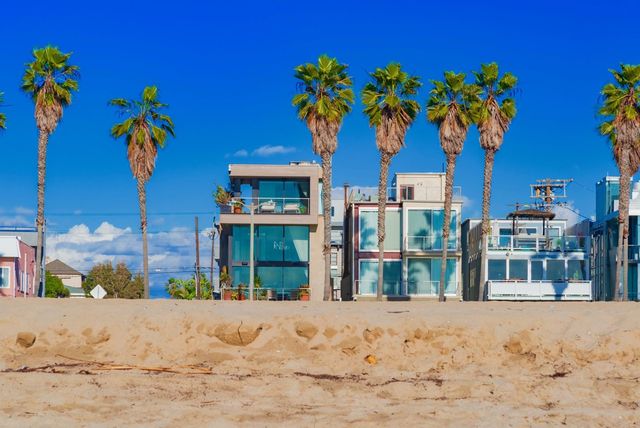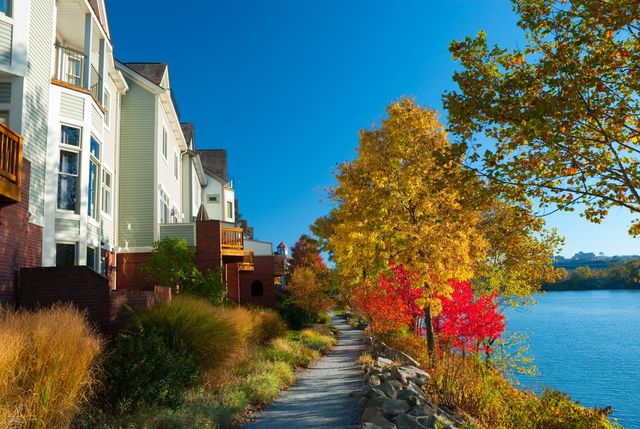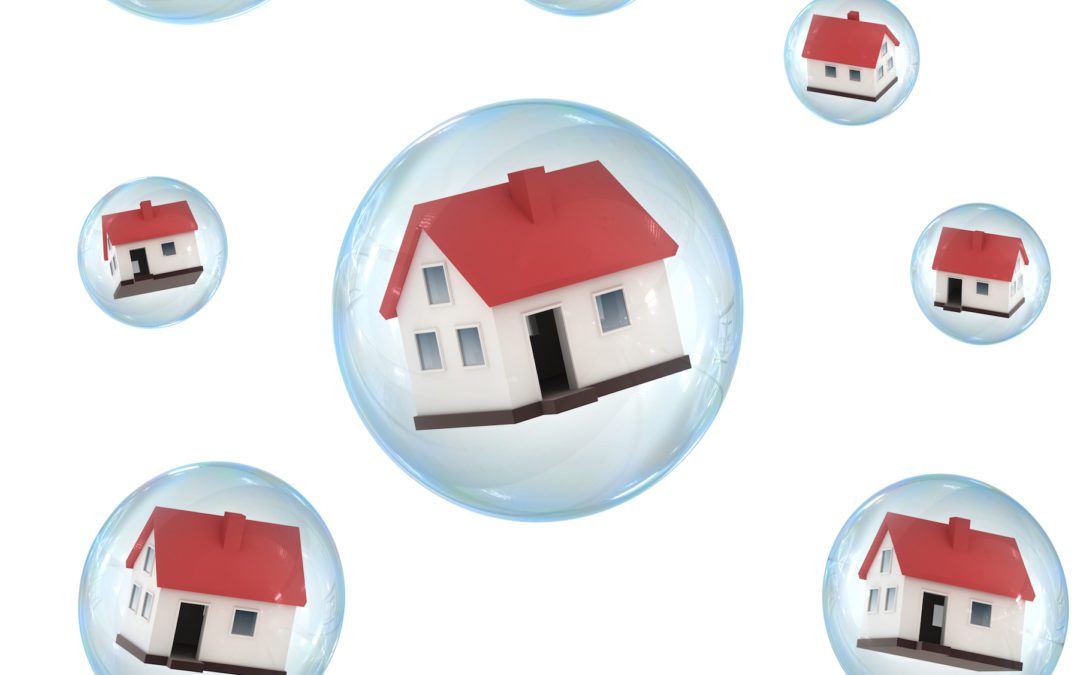Home Prices Are Still Shooting Up, but Is This a Bubble About To Burst?
The nation’s surging home prices don’t seem to care about the recession the country is mired in. They can’t be bothered by the deadly coronavirus pandemic or the double-digit unemployment that’s come as a result. Instead, prices are defying logic, expectations, and even belief, as they shoot up to record highs amid an unprecedented health and economic crisis.
It has all led some to wonder: Are some markets getting too hot? Could a significant correction be around the corner?
Such questions have become louder in recent weeks, in the face of some startling growth numbers, particularly in some high-priced California and less expensive Rust Belt, Midwestern, and Southern markets.
In some of these metropolitan areas, prices have shot up by more than 20% in the past year alone. Just how sustainable is this seemingly irrational home price exuberance, anyway? Could we be entering the dreaded bubble territory once again?
Nationally, the median home list price rose 10.1% year over year in the week ending Aug. 15, according to the most recent realtor.com® figures. No one predicted such a dramatic increase compared with 2019—when the economy was strong, no one had heard of COVID-19 and social unrest hadn’t exploded.
In fact, many experts predicted prices would flatten, if not fall.
Reality check: If there is a current-day bubble, it bears little resemblance to the gigantic bubble created by subprime mortgages, which burst into the Great Recession. Then came the mass foreclosures, plummeting home values, and the scores of homeowners suddenly underwater on their mortgages.
This year’s sky-high prices are driven by a rush of buyers competing for a very limited supply of properties. More demand than supply equals higher prices.
“Some markets are overvalued,” says Javier Vivas, realtor.com’s director of economic research. “Growth of prices in a recession is pointing in that direction. Some markets are seeing increased risks of price corrections.”
Instead of another real estate fire sale, certain parts of the country could see price hikes slow down or flatten, or prices even come down—by just a little. That could happen if prices rise so high that homeownership becomes too expensive for the majority of would-be buyers.
So instead of a bubble popping, it’s more that home prices could come back to reality.
Typically, market corrections happen fairly quickly, within two or three months, as priced-out buyers make a beeline for the sidelines, says Vivas. This year, record-low mortgage interest rates are muddying the picture.
Rates under 3% for the first time ever are driving more buyers into the market and allowing them to stretch higher on what they’re willing to pay. Lower rates mean lower monthly mortgage payments. That’s allowing sellers to ask—and receive—more for their properties.
Those who weren’t able to buy in the spring because of the pandemic—along with buyers desperate for larger, single-family homes with big backyards after sheltering in place for months—are adding to the rising demand.
However, worries about the pandemic have led to a record-low number of homes for sale, as sellers decided to wait out the health crisis. Meanwhile, many builders were forced to pause projects in some parts of the country. That’s led the scrum of competing buyers to bid up prices in an effort to secure a property.
Most striking in 2020’s home price ramp-up is the fact that’s happening in some of the nation’s most expensive and cheapest markets alike.
“In the inexpensive markets, you have a ton of space for prices to grow. You can see them overheat and absorb that overheating better,” says Vivas. That’s unlike the already high-priced coastal areas.
“The outlook for them is a faster and broader correction, [with] slight declines in home prices.”
Price corrections could happen by the end of the year in areas where prices have risen very high—along with local unemployment rates, says CoreLogic’s chief economist, Frank Nothaft.
Why won’t we see another Great Recession-era housing bubble?
The sky-high prices of 2020 are being driven by an influx of buyers bidding up prices on a historically low number of homes on the market. Until more properties come online, that dynamic is unlikely to change.
The Great Recession had the opposite problem: There were many more homes available than qualified buyers.
In the aftermath of the housing bust, it’s become harder for buyers without good jobs and strong credit to score mortgages. This weeds out riskier borrowers. And unlike the last go-around, when builders were erecting residences at what seemed like a break-neck pace, the under-building of the last few years has exacerbated the housing shortage.
Even if the economy doesn’t improve by next year and a vast swath of Americans remain unemployed, we are not likely to see the flood of foreclosures that characterized the housing crash, partly because government protections could be extended.
“It doesn’t feel at all like last time, when the market was getting all pumped up by easy mortgage credit,” says Mark Zandi, chief economist of Moody’s Analytics.
Is a correction looming for housing markets that are priced way high?

Diego Mariottini / EyeEm/Getty Images
Some of the nation’s most expensive housing markets are getting costlier by the day.
Median list prices surged in the Santa Maria, CA, metropolitan area, which includes tony Santa Barbara, CA. They were up no less than 44% annually in July, to reach $1,795,050.
That was the largest increase in the nation, despite the relatively high percentage of locals out of work (12%). In the Los Angeles metro area, prices increased by 24%, to a median $994,150.
They were considered two of the country’s potentially most overvalued markets, due to their massive price hikes, despite double-digit unemployment rates.
Gerd-Ulf Krueger, president of Krueger Economics, doesn’t expect prices in the Los Angeles area to slow down, let alone fall, unless residents on the higher end of the income spectrum (i.e., the 1%) lose their jobs or receive salary cuts.
While the unemployment rate in the Los Angeles metro area topped 18% in June, those at the top have been largely spared the financial pain experienced by those on the lower income rungs.
“The income gaps are very severe” in the Los Angeles area, Krueger says. The problem has also been exacerbated by a lack of new construction in the region, making it even more difficult for buyers to find affordably priced properties.
Sellers “are a little over-enthusiastic. They are realizing the wealthier or more affluent middle class still have money to buy homes.”
Will home prices in cheaper areas really keep going up?

Davel5957/ Getty Images
Pennsylvania has the most metropolitan areas that have experienced both the highest price increases and high unemployment. This puts them at risk of price corrections.
In the Pittsburgh metro, median list prices rose 25% in July compared with a year earlier, a rise that could make the market overvalued. (Metros include the main city, surrounding suburbs and towns and smaller urban areas.)
“It’s just a product of supply and demand,” says Pittsburgh-based real estate agent Bobby West of Coldwell Banker Realty Services. “There are so few homes that are coming on the market, those that do are selling within 24 hours, with more than one offer.”
“It was a mad rush” when real estate services reopened after the pandemic shutdown, says West. “My bet is things will cool down into the fall and the winter months as far as pricing goes.”
However, with a median list price of just $249,950—about 40% less than the national median—prices still have room to rise.
The old steel town of Allentown, PA, and the surrounding metro area, have seen price increases comparable to Pittsburgh’s, as the supply of homes for sale has dwindled. Median list prices shot up 21% year over year, to reach $278,500 in July, according to realtor.com data.
The area is benefiting from folks leaving the New York City and Philadelphia areas and heading to Allentown, where they can afford more spacious homes—particularly if they’re now able to work remotely due to the pandemic, says local Keller Williams real estate agent Faith Brenneisen. The city is about 90 miles west of New York City and 60 miles north of Philadelphia—and its homes are selling for a fraction of the prices in those two cities.
She’s receiving seven to 10 offers per listing and offers running $20,000 to $30,000 over asking for homes priced in the sweet spot of $150,000 to $250,000.
Median list prices were up in Reading, PA, by 24% to $272,450 in July, compared with the previous year. In Wichita, KS, they rose 22% to $246,150, they were up 19% in Fayetteville, NC, to $219,800; they increased 18% in Philadelphia to $340,000; they grew 17% in Canton, OH, to $190,000 and 16% in Mobile, AL, to $215,350. All of these areas also had unemployment rates at or above 10% in June, according to the most recent data from the U.S. Bureau of Labor Statistics.
The post Home Prices Are Still Shooting Up, but Is This a Bubble About To Burst? appeared first on Real Estate News & Insights | realtor.com®.
Homebuyers: For access to all listings and to find a homebuyers real estate agent that will represent only your interests call 800-935-6222 or click the button below to connect with MABA. At MABA we got you!

FIRST TIME HOMEBUYERS
First Time Home Buying in Massachusetts
 MABA Buyer Agents help first time home buyers reduce the stress and frustration normally associated with buying a home or condo – especially for first time home buyers.
MABA Buyer Agents help first time home buyers reduce the stress and frustration normally associated with buying a home or condo – especially for first time home buyers.
As a first time homebuyer in Massachusetts, you can turn to our non-profit organization to help you understand and navigate the complexities of the entire Massachusetts real estate transaction, from mortgage pre-approval until you are handed the keys to your new home or condominium. Each of our member buyer's brokers and agents works only for their buyer-clients and never for the seller of the home or condo that their buyers want to buy.
MABA Buyer Agents will take the time to learn about you and your real estate goals, help you understand your options, including first time home buyer programs, properties and/or condominium associations, estimate real property values and put together a negotiating strategy to help you increase the odds of getting your offer accepted in our competitive Massachusetts real estate market. After advocating to get your offer accepted, your MABA buyer's agent will be there for you at your home inspection and help you protect your deposit through the inspection, purchase & sale and financing contingency periods.
You can buy your first home or condo with confidence knowing that your MABA buyer agent is committed to saving you time and money and helping you make your best home buying decision.
Tags used in this Real Estate Homebuyer in Massachusetts blog post:
#HomeBuyers #BuyersAgent #Boston #ma #RealEstate #HomeBuying #Broker #home #homesforsale
Article From: "Clare Trapasso" Read full article
Get Started with MABA
For no extra cost, let a MABA buyer agent protect your interests



